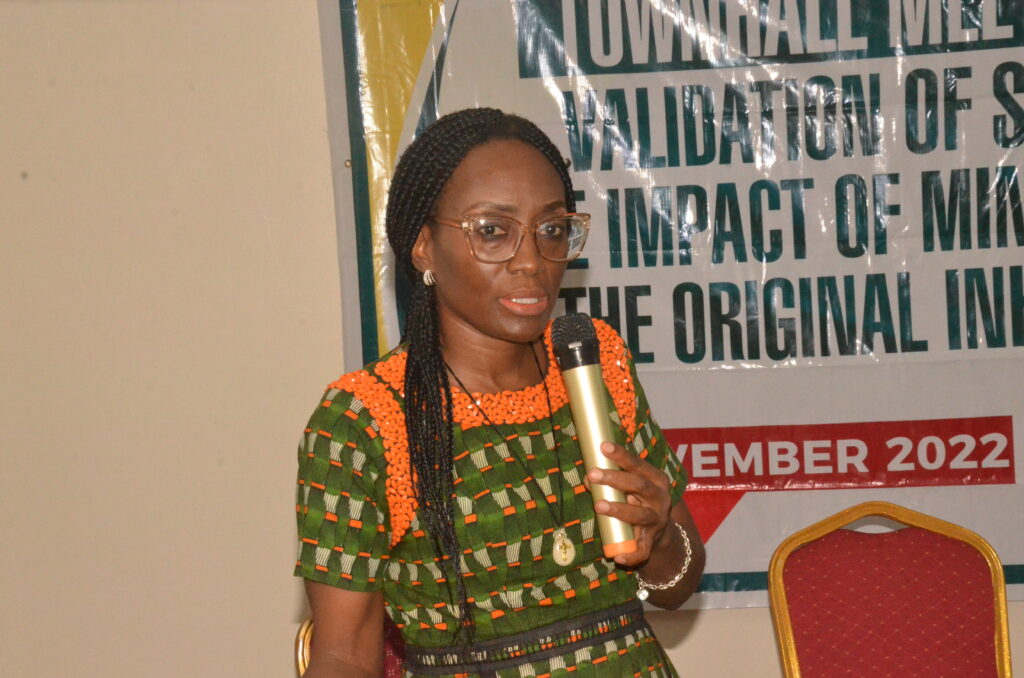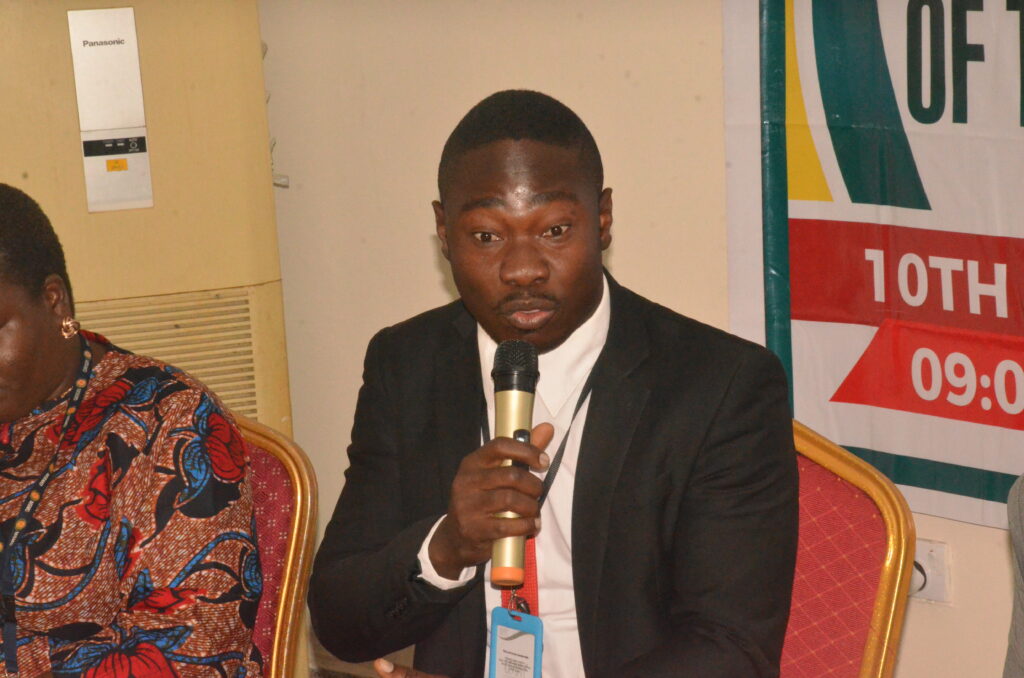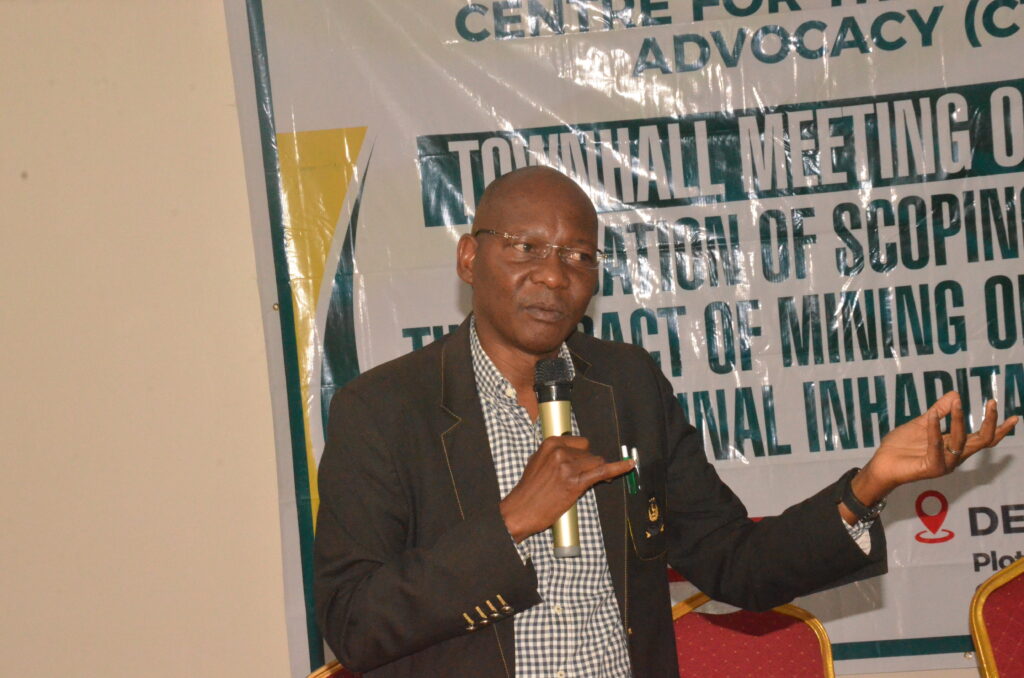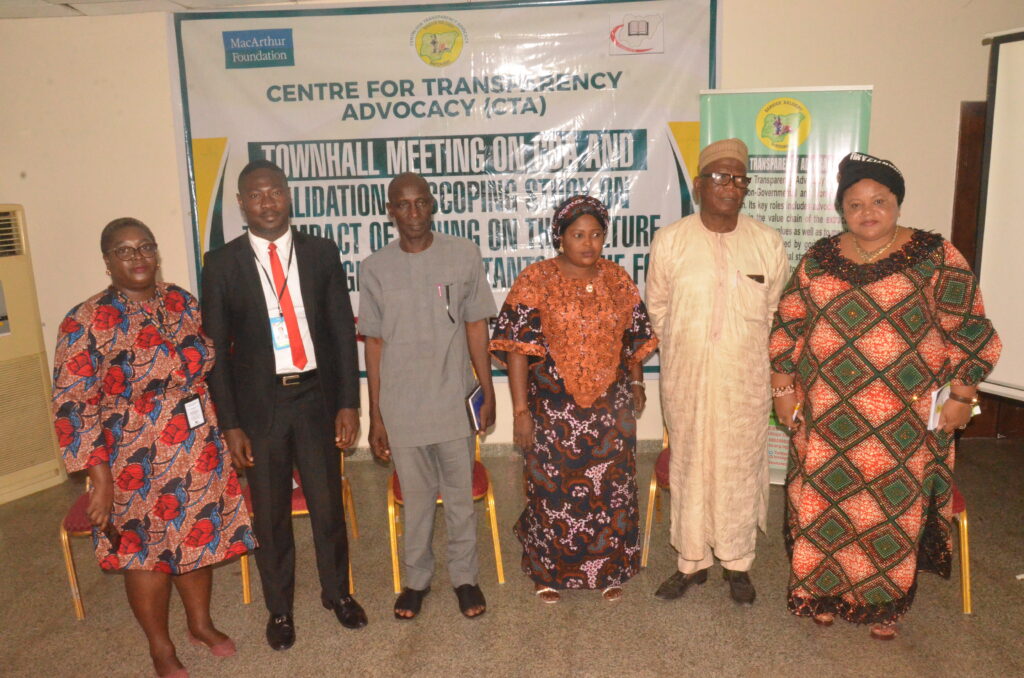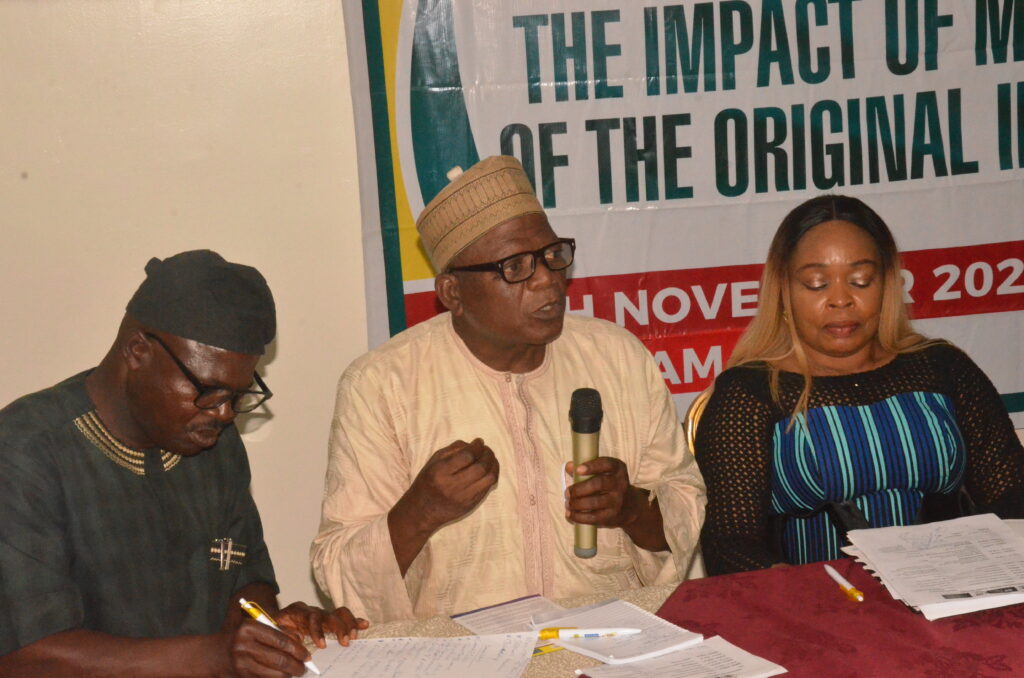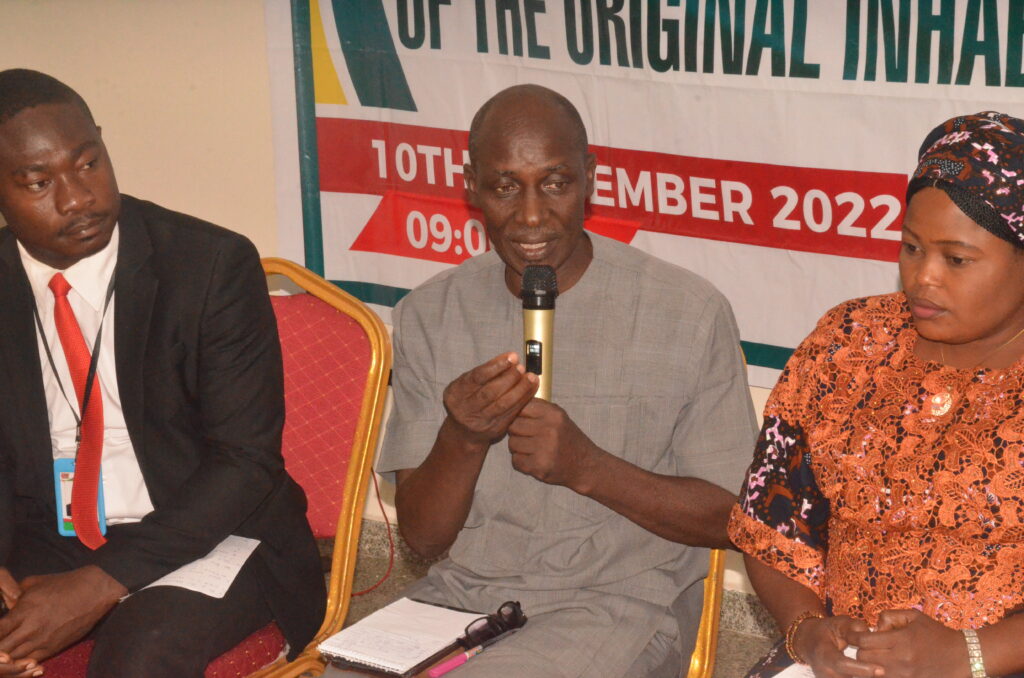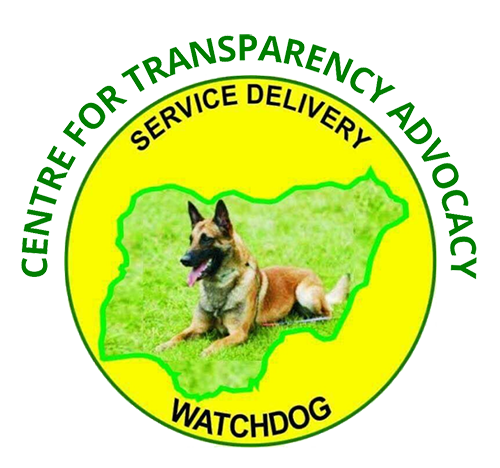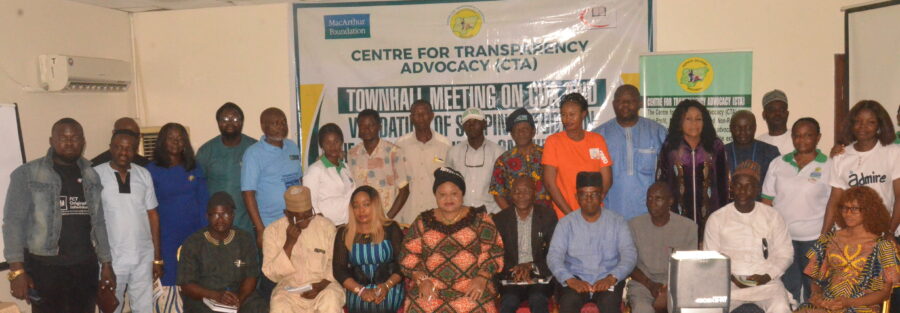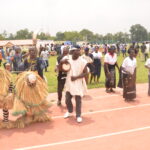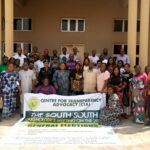CTA Town Hall meeting on CDA and Validation of Scooping study on the Impact of Mining on the Culture of the Original Inhabitants of FCT.
The purpose of this meeting is to share a draft of the scooping study report with stakeholders like you to validate the claims obtained from the field and give room for your contribution and recommendations.
Objective(s) of the activity: To identify gaps and highlight areas of concern as regards the impact of mining on the culture of the Original Inhabitants of FCT and give room to validate reports by stakeholders and beneficiaries of the project.
GOODWILL MESSAGES
- STATEMENT BY CHRICED REPRESENTATIVE, MR JAFAAR ABUBAKAR
The CHRICED representative clearly articulated the main focus of the project as the “promotion of equitable recovery” for the Original Inhabitants of the FCT. In his remarks, he spoke about the impact of the Covid-19 pandemic which had a great impact on the Original Inhabitants generally and this has raised a cause for concern because the people’s rights have been stripped, therefore leaving them in a state to face different forms of marginalization.With respect to the Community development Agreement (CDA), he communicated that some of the host communities where these mining activities take place have no knowledge of how to go about the CDA or even negotiate a good contract. Moving forward, he added that CHRICED and the other ten sub-grantees will continue to engage relevant MDAs to ensure that the Original Inhabitants of FCT get justice.
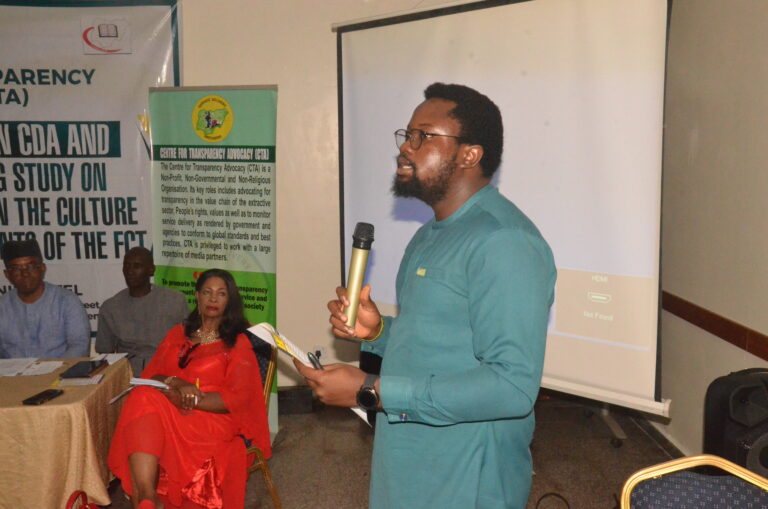
- STATEMENT BY THE PRESIDENT, WOMEN IN MINING, MRS JANET ADEYEMI
Women in Mining generally condemn the continuous destruction of the environment, the lives of people and their culture all in the name of money and development. She added that the key to social benefit in any system is “negotiation”. Bringing to the table all stakeholders small and big, including women (not just illiterate women) who can keep up with discussion and make meaningful contributions. In conclusion, she expected to have recommendations from this meeting on how to go about contract transparency because the indigenes have been denied their rights long enough.
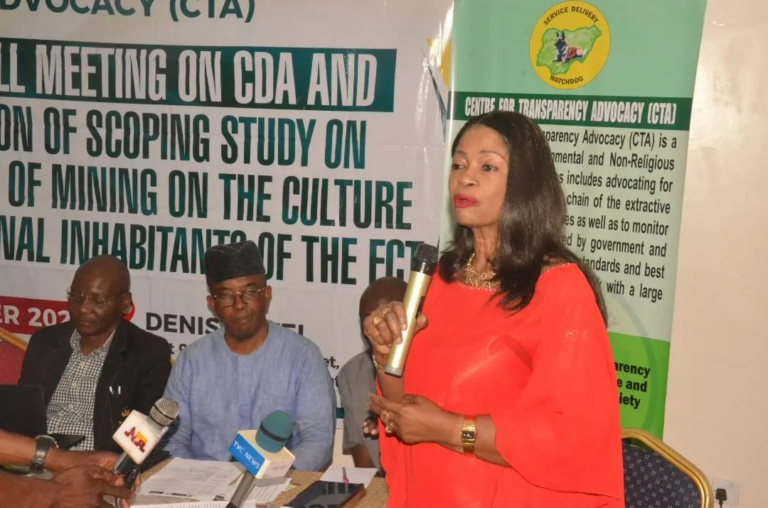
- STATE FROM THE REPRESENTATIVE OF THE ESU OF BWARI, HONOURABLE J.H AWUYI The youth president referred to the common saying that “FCT is a no man’s land” and pointed out that there is a big error in the statement because history has taught otherwise. Talking about the issue of mining, he revealed that there are a lot of illegal mining/quarrying activities going on in the FCT which has left a negative impact on both the environment and the lives of the people. Concerning the issues around resettlement, he reported that recently the District Head of the Waru community had complained that the Government want to forcefully remove them from their land and relocate them to Nassarawa state.
- STATEMENT FROM THE REPRESENTATIVE OF PUBLISH WHAT YOU PAY, MR. CHUKWUDI ARUM REPRESENTING THE NATIONAL COORDINATOR. Publish What You Pay advocates for accountability in the extractive sector by ensuring that the benefit of oil, gas, mining and other natural resources translate into the improvement of people’s lives. He added that the shared vision of the organization is to see the benefits of natural resources to the people always.
Hailed CTA for organizing such an event and added that it was timely and strategic since it brought together in one place mining host communities and relevant stakeholders which is necessary for addressing some of the issues and challenges of the host communities
- STATEMENT BY MR. CLEMENT WASAH When you talk about recovery for the Original Inhabitants, he said that the youth are in a better position to reveal where illegal mining is taking place and how CTA can be of help in handling the issue. Expressed that CTA is already making an impact and hope it continues at this pace so that recovery especially the cultural aspect can be achieved.
- STATEMENT BY THE CHAIRMAN OF THE OI CULTURAL AMBASSADOR, MR. LAZARUS NUHU NYAHOLO
He pointed out the effect of the mining as compared to a few months ago. He sounded that because of the impact of CTA on this project, he is more aware of his rights which has even led him in carrying out more research to broaden his knowledge.Although mentioned that some of the mining companies claim they have been licensed but suggested that there needs to be a form of authentication of these licenses. Corrected the notion of people saying that the FCT OI sell their houses given to them by the government and added that it was for a reason because a large family cannot be accommodated with only a block of flat with two rooms.
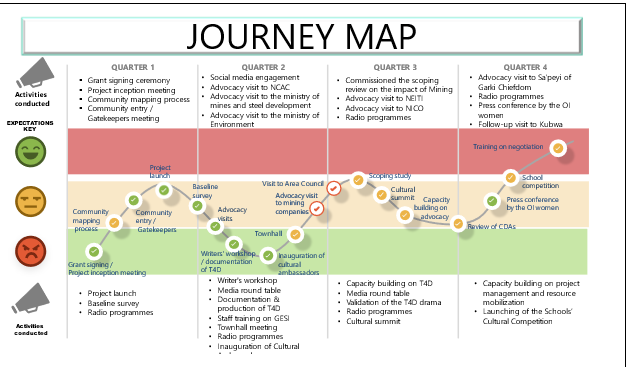
KEYNOTE PRESENTATION BY THE REPRESENTATIVE OF THE HONOURABLE MINISTER OF MINES AND STEEL DEVELOPMENT, DR MRS VIVIAN OKONU ON COMMUNITY BENEFICIATION THROUGH THE COMMUNITY DEVELOPMENT AGREEMENT. She started by explaining the Community Developing Agreement (CDA) as similar in context to Cooperate Social Responsibility (CSR), except that the former is from the provision of the law, making it compulsory for every mineral/mining company to be a part of while the latter is based on voluntary which helps to project the image of the company in the good life. CDA is to ensure that the mining host communities are carried along by the mining operators. The federal government has thought it right to include the CDA in the Nigeria Mineral and Mining Act, 2007.Section 116(1) of the law made the CDA to be a contract between the mineral/mining title holders and the host communities mandatory. And went further that the section stipulates other relevant sub-sections as follows;
- The holder of the mining list; small-scale mining list or foreign list shall probe before the commencement of any mining development with the list area, and conclude the CDA with the mining host communities where the operators are to carry out mining activities. This is to ensure the transfer of both social and economic benefits to the host communities.
NOTE: Sub-section 2&3 lists out all the items especially to be addressed by the CDA.
- Help quality of life in the broadest possible way through cooperative support of educational institutions, community development programmes, and infrastructural development such as the construction of roads, markets, hospitals, provision of pipe bore water, electricity and other activities that are considered to safeguard the position of the companies
NOTE: sub-section four says that in the event of a failure of the host community and the company, after several attempts to conclude the CDA by the time the mineral service holder is ready to commence work, the matter shall be referred to the Ministry of Mines and Steel Development for resolution. Furthermore, she stated that the CDA is reviewed every five years by the parties.
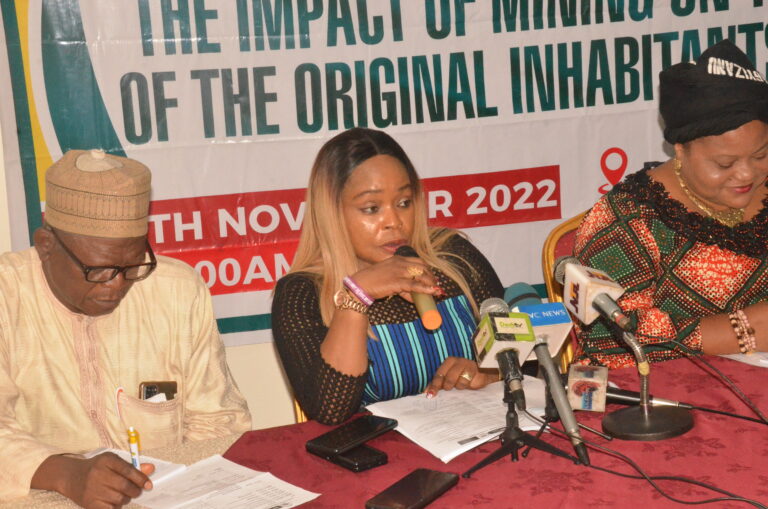
SUMMARY OF GAPS AND RECOMMENDATIONS FROM THE SCOPING STUDY
- Revisit the history of Abuja and get to hear the original version from the indigenes themselves.
- Gbagyi was not correctly spelt in the document.
- Communities resettled in Kubwa were Maitama and Katampe etc. Jabi and Garki were not resettled to kubwa.
- There were errors in FCT tribes and languages. Hausa and Nupe are not part of the tribes in the FCT
- Corrections of spellings of some of the Original Inhabitants’ places. Please check for the correct spelling. Areas where FDA was used, should be replaced with FCTA.
Outcome Ensured that gaps specified in the scoping study report are taken note of.
Conclusions/ Recommendations It was established that one of the ways that the mining host communities can fully be involved in the Community Development Agreement process is by creating awareness in the community and educating them, building their capacity to negotiate and engagement of relevant stakeholders.
Next Steps– CTA to collaborate with relevant stakeholders to conduct a training on building the negotiation skills of the community members and input corrections and recommendations from the scoping study report.
